eCommerce Loans & Financing: Quick & Flexible Solutions
Lets Get Started
In today’s rapidly evolving digital landscape, eCommerce businesses are growing at an unprecedented rate. After all, you can start an eCommerce business right from your own home. Acquiring funds for an eCommerce business can help with various aspects of the business, such as inventory management, marketing, and expansion. However, navigating the myriad of financing options available to eCommerce businesses can be daunting. By understanding the different types of loans, as well as alternative financing, and each type of financing’s unique features, you can make a well-informed decision about which option best aligns with your eCommerce business needs and goals.
Financing Options for eCommerce Businesses
Financing refers to the loans and other types of business financing banks and other financial institutions offer to businesses, including eCommerce retail companies. These financing options typically require those looking for funding to meet certain eligibility criteria such as credit score, business history, and revenue. While bank financing is often looked at as the most common source of funds for online businesses, it may not always be the most accessible or flexible option. Here’s an overview of some financing options for eCommerce businesses:
Bank Loans (Term Loans)
At their most basic, term loans are what you picture at the most basic idea of a small business loan. A merchant seeking funding solutions is loaned a particular amount of money and must repay that money over an agreed-upon timeframe. This repayment typically takes the form of consistent monthly payments.
The application process for bank loans typically involves submitting a detailed loan application package that includes information about the eCommerce business, such as financial statements, tax returns, a business plan, and details of the business’s assets and liabilities. The bank will assess the borrower’s creditworthiness, business history, and financial health to determine loan eligibility. This process can be time-consuming, taking several weeks or even months to receive a decision. Borrowers may be required to provide collateral, personal guarantees, or meet other stringent requirements to qualify for a loan.
Interest rates on bank loans for eCommerce businesses can vary depending on the borrower’s creditworthiness, loan amount, and term. Rates are generally competitive, expect to pay interest ranging from around 4% to 12%. Repayment terms can also vary, with short-term loans typically requiring repayment within one to three years, while long-term loans can extend up to 10 years or more.
Small Business Administration (SBA) loans
Small Business Administration (SBA) loans are government-backed loans designed to help small businesses access capital and grow their operations. These loans are partially guaranteed by the U.S. Small Business Administration, reducing the risk for lenders and enabling them to offer favorable terms and low interest rates. SBA loans cater to a wide range of small businesses, including startups and established companies, across various industries.
Although the application process for SBA loans can be time-consuming and requires extensive documentation, they are an attractive funding option for eligible small businesses seeking capital with competitive terms.
SBA 7(a) Loans
Suitable for eCommerce businesses, these loans offer up to $5 million for various purposes, including working capital and equipment financing. They have flexible repayment terms and competitive interest rates for businesses with strong credit scores and solid business plans. SBA 7(a) loans are often among the lowest-cost loan options available if your business has good credit.
SBA 504 Loans
Designed for long-term, fixed-rate financing for real estate and large equipment purchases, 504 loans are provided through Certified Development Companies. They offer up to $5 million and are ideal for eCommerce companies looking to invest in significant assets for long-term growth.
SBA Microloans
Offering smaller loan amounts of up to $50,000, microloans are suitable for startups and small businesses with limited credit history. They can be used for working capital, inventory, and equipment, with shorter repayment terms of up to six years. Microloans provide essential capital for small eCommerce businesses when traditional financing options are unavailable.
Interest rates and eligibility
Interest rates for SBA loans are generally competitive and set according to the U.S. Prime Rate plus a markup rate determined by the lending institution. Depending on the loan program and lender, rates can be fixed or variable. For SBA 7(a) and 504 loans, the rates typically fall within the range of 5% to 11%, while microloans may have slightly higher rates.
Eligibility criteria for SBA loans include:
Business Size: The business must meet the SBA’s definition of a small business, which varies by industry, annual revenue, or the number of employees.
Location: The business must be based in the United States.
For-Profit: The business must operate as a for-profit entity.
Creditworthiness: Borrowers should have good personal and business credit scores.
Investment: The business owner must have invested their own time and money into the business.
Collateral: Depending on the loan program, collateral may be required to secure the loan.
Business Plan: The borrower must present a comprehensive business plan that demonstrates the viability of the business and the ability to repay the loan.
Business lines of credit
A business line of credit is a flexible financing option for eCommerce businesses, giving them access to a set amount of funds they can draw from as needed. This type of financing is particularly beneficial for eCommerce businesses because it allows them to manage fluctuating cash flow, cover unexpected expenses, or invest in growth opportunities.
With a business line of credit, eCommerce businesses can borrow up to a predetermined limit, only paying interest on the amount actually used. Once the borrowed funds are repaid, the credit line becomes available again for future use. This flexibility is advantageous for eCommerce businesses that experience seasonal fluctuations in sales or need to make inventory purchases ahead of peak selling periods.
The application process for a business line of credit typically involves submitting financial statements, business plans, and other relevant information to the lender. Interest rates and fees for lines of credit can vary, with rates generally dependent on the borrower’s credit history and the overall risk profile of the eCommerce business.
Equipment Financing
Equipment loans are a financing option specifically designed to help businesses, including eCommerce businesses, purchase or lease the equipment needed for their operations. In the context of eCommerce, this equipment can range from computers and servers to warehouse machinery, inventory management systems, or packaging equipment.
With an equipment loan, the lender typically provides a lump sum of money to cover the cost of the equipment, which the eCommerce business then repays over a predetermined period with interest. One of the main benefits of equipment loans for eCommerce businesses is that the purchased equipment often serves as collateral for the loan, reducing the need for additional collateral or personal guarantees.
The application process for an equipment loan usually involves providing the lender with information about the business’s financial health, the type of equipment needed, and the anticipated benefits of the new equipment. Interest rates and repayment terms for equipment loans can vary depending on factors such as the borrower’s credit history, the equipment’s cost, and the business’s overall risk profile.
Alternative Financing for eCommerce Businesses
Merchant cash advances
Looking for a financing option completely different than a loan? Merchant cash advances (MCAs) are a unique financing option which involve a company purchasing a percentage of future sales from your eCommerce store. The business then repays* that advance through a percentage of their daily or weekly sales revenue.
For eCommerce businesses, MCAs can be an attractive financing option because they offer quick access to funds, usually within a few days, and do not require collateral or a high credit score. This flexibility can be beneficial for businesses experiencing fluctuating sales, seasonal fluctuations, or needing funds for unexpected expenses or growth opportunities.
The application process for an MCA typically involves submitting information about the business’s credit card sales history, financial performance, and other relevant documentation. The MCA provider will evaluate this information to determine the advance amount and the repayment terms, which will include a factor rate. The factor rate is multiplied by the advance’s size to determine the advance’s total repayment cost.
MCAs can be a convenient financing solution for eCommerce businesses.
Specialized eCommerce Financing Options
Amazon Lending
Amazon Lending is an eCommerce funding program offered by Amazon to eligible sellers on its platform. The primary goal of this lending program is to help small and medium-sized businesses (SMBs) grow and expand their operations by providing them with short-term loans. Amazon Lending offers an alternative financing solution tailored to the unique needs of eCommerce businesses, specifically those operating on the Amazon marketplace.
Amazon Lending works by identifying potential borrowers based on their selling history, customer reviews, and overall performance on the platform. Amazon then extends loan offers to these sellers, which they can either accept or decline. The loan amounts typically range from a few thousand dollars to several hundred thousand dollars, depending on the seller’s business performance and needs.
Shopify Capital
Shopify Capital is a financing program offered by Shopify to eligible merchants who use their eCommerce platform. The program aims to provide small and medium-sized businesses with the necessary funds to grow and expand their operations. Shopify Capital offers an alternative financing solution specifically designed to cater to the needs of eCommerce businesses operating on the Shopify platform.
Shopify Capital provides financing in the form of merchant cash advances and loans. The funding amounts typically range from a few thousand dollars to several hundred thousand dollars, depending on the merchant’s sales performance and business needs. Shopify identifies potential borrowers based on their sales history, growth potential, and overall performance on the platform.
The repayment terms for Shopify Capital are designed to be flexible and aligned with the merchant’s sales. Instead of charging a fixed interest rate, Shopify Capital takes a predetermined percentage of the merchant’s daily sales as repayment. This means that during periods of lower sales, the merchant pays back less, while during higher sales periods, they pay back more. This structure helps ensure that repayments are manageable and proportional to the merchant’s revenue.
Credit Options for eCommerce Businesses
Business credit cards
Business credit cards offer various benefits for eCommerce businesses, including quick access to working capital, easier expense management, and the potential to earn rewards or cashback. They also help build business credit, which can lead to better financing terms in the future. Additionally, business credit cards can serve as short-term financing for covering unexpected costs or seizing growth opportunities. However, responsible usage is crucial, as high balances or missed payments can negatively impact the business’s credit score and result in high-interest charges. eCommerce business owners should carefully assess their financial needs and choose a credit card that aligns with their spending habits and business objectives.
Factors to Consider When Choosing eCommerce Business Loans
1. Assessing your business needs
Before seeking financing for an eCommerce business, it’s crucial for small business owners to identify specific needs and objectives. Consider the purpose of the funds, whether it’s for inventory expansion, marketing campaigns, website development, or other growth initiatives. By understanding the exact purpose, you’ll be better equipped to determine the financing required and select the most suitable option.
2. Evaluating your credit score and credit history
Banks often consider your credit score and credit history when determining loan eligibility, interest rates, and repayment terms. A strong credit score and positive credit history demonstrate responsible financial management, making your eCommerce business a lower risk to lenders. Review your credit report, correct any errors, and take steps to improve your credit score before applying for financing to increase your chances of obtaining favorable terms.
3. Comparing interest rates and repayment periods
Different financing options come with varying interest rates, factor rates, and repayment terms. Take the time to compare these aspects across various lenders and funders, as well as loan products to identify the best fit for your eCommerce business.
4. The importance of a well-crafted business plan
A comprehensive business plan is essential when seeking financing for your eCommerce business. It outlines your business’s goals, strategies, target market, competition, and financial projections. A well-crafted business plan demonstrates your ability to successfully manage and grow your business, which can increase your chances of securing financing. Be prepared to provide a detailed business plan when applying for loans or approaching potential investors. This may not be necessary with alternative financing such as an MCA.
5. Understanding the unique challenges of eCommerce financing
eCommerce businesses face unique challenges when seeking financing, such as the absence of physical assets that can serve as collateral, variable cash flow due to seasonal fluctuations, and reliance on digital marketing strategies. Recognizing these challenges allows you to better position your eCommerce business when applying for financing. When discussing financing options with lenders or investors, be prepared to address these concerns and showcase your business’s strengths, growth potential, and strategies to mitigate risks.
Conclusion
Securing business funding for an online store is critical to promoting growth and success in the ever-evolving digital landscape. It’s essential for eCommerce business owners to explore various financing options such as SBA loans, bank loans, business lines of credit, equipment loans, and merchant cash advances, while carefully considering their unique business needs and challenges.
By evaluating your credit score and history, comparing interest rates and repayment terms, crafting a solid business plan, and understanding the specific challenges faced by eCommerce businesses, you can successfully navigate the financing landscape and secure the funds needed to take your online venture to new heights. The right financing option can ultimately provide the necessary capital to expand inventory, improve marketing efforts, enhance your eCommerce platform, and drive long-term growth and profitability.
*Repayment in this context describes the process of repurchasing a merchant cash advance. It does not describe the process of repaying a loan. MCAs are legally distinct from loan products.





